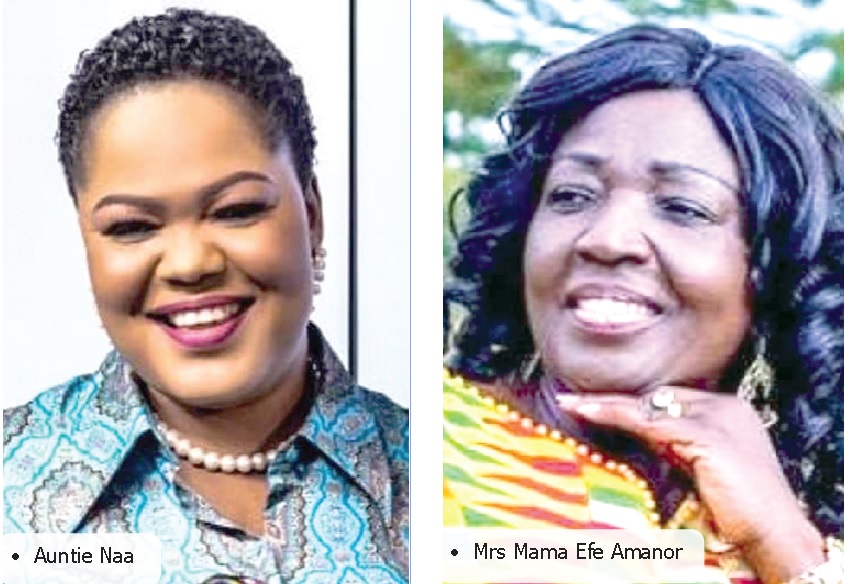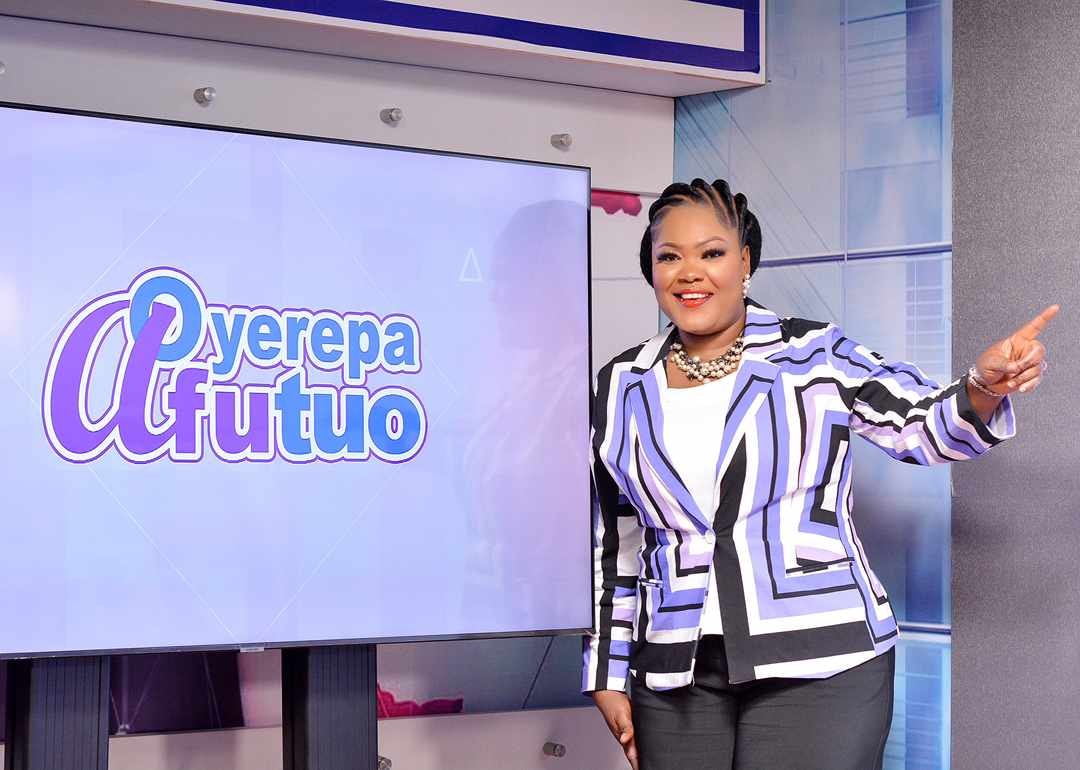
Auntie Naa of Oyerepa FM and Mama Efe of Nhyira FM; Media heroes to the rescue in social sector
In the last two articles of this column, we have explored the issue of what we might describe as “accidental single motherhood among young poor women”.
Accidental because neither the woman nor the man who produced a child expected that outcome.
The women who are thus encumbered with a child are poor and without much in the way of resources or opportunities.
Various suggestions came at the end of the second article, including the need for the state to intervene to help these young women and also find the fathers of the children.
I had not intended to continue the series, but in the context of finding solutions, I think it is important to acknowledge the work being done by some people who deserve to be celebrated as heroes of our time.
Roughly two years ago, while in the UK, I became aware of the work of two women and their staff in helping reconstruct broken social relations and individual lives.
Over the last thirty years, the media terrain of Ghana has changed beyond recognition, especially in terms of numbers.
It has grown from a couple of radio stations and a single TV station into a massive industry which counts every category in the hundreds, including online and social media, which did not exist at the beginning of that timeframe.
However, many people, including yours truly, have found occasion to question the commitment of our media to undertake the serious task of serving as mediators in the many crises that we encounter as individuals and as a nation.
In Ghana, despite the existence of a huge public bureaucracy dedicated to the social and economic well-being of citizens, people find themselves alone and unsupported in times of personal need and emergency.
Anyone who has tried to use any of our public services has a story; a tale of a negative experience, sometimes of humiliation and extortion at the hands of the very institutions that exist to help us overcome adversity.
It is this breach that has stepped some dedicated media personalities who have dedicated their media channels and human resources to the service of poor people who, in their desperation, have nowhere to turn.
These people have now found safety and consolation in a number of media channels and programmes that are providing splendid safety nets where the state is completely absent.
This kind of media is evolving into a movement that is gathering public support, as well as professional and material resources along the way.
It can best be described as “humanitarian media”, because although they form part of the vast and overblown category of commercial media in Ghana, their purpose exalts their practice beyond mere profit.
Today, I dedicate this column to two women and their staff who are at the forefront of this movement.
Take a bow, Mama Efe and Auntie Naa of Nhyira FM and Oyerepa FM respectively. These programmes and their hosts deploy a range of social and psychological resources to assist hundreds of thousands of people who go to them with their cases when life becomes a bit too much to bear.

It is safe to bet that Ghana’s policymakers may not be familiar with these dedicated media personalities.
They operate mostly in the context of Kumasi’s subculture, which has defined itself with its own movie industry known as “Kumawood”.
In some ways, the style and content of this kind of media are influenced by the local Kumasi ethos of community, charity, solidarity and cultural pride.
Mama Efe, real name Mrs Mama Efe Amanor, described as “Africa’s Oprah Winfrey”, has won the ‘Queen of Humanitarian Affairs’ award provided by Prince Hampel.
The humanitarian award is given in recognition of dedication to humanity. Mama Efe has been serving humanity for more than three decades. Auntie Naa, real name Eunice Amerley Nortey, has been part of the development of this media genre and currently hosts ‘Oyerepa Afutuo’ on Oyerepa FM.
Both the Nhyira and Oyerepa stations also have TV stations and online presence. They have a huge following abroad, especially in the UK, Europe, North America, and the Middle East and North Africa.
These programmes typically resolve marital, financial, relationship and family difficulties that confront families, couples and individuals for which the normal routes of resolution are often not enough to resolve.
These programmes serve as divorce courts, financial advisors, psychological counsellors, spiritual guides and cultural arbiters.
The premises of these stations tend to look like courthouses, with scores of people who line up to present their cases every day.
Many of the cases involve estranged couples, absentee fathers, disputed parenthood and a raft of spiritual cases involving the invocation of curses and other complicated matters.
Cases that should be resolved by our courts are taken to these stations because most of the people who seek help and solace at these programmes lack the financial resources to take their cases to our courts.
Also, even if these cases went before the courts, they would take weeks and months to resolve. However, these programmes are able to satisfy most people appearing before them within a few sessions.
While the content comes across as sensational and prurient in some cases, the programmes are often well-researched and produced. The hosts and panels approach their work with professional seriousness and personal concern and dedication.
These programmes have become social support centres to which people with various types of disability turn for support. In a recent episode I watched, Autie Naa’s Oyerepa programme called a list of disabled people who were invited to go for gifts from listeners and viewers who regularly respond to their calls for charity to support people in need.
On the same day, during the programme, the Asanteman Peepeye Fekou International Group presented 50 pieces of cloth and money to widows who had responded to calls on Oyerepa. It was not an isolated gesture.
In another episode, an appeal for help was launched on behalf of a 20-year-old lady who has suffered an unexplained paralysis. Within hours and days of the appeal, Oyerepa had collected thousands of cedis in cash and in-kind t o support her.
o support her.
These kind gestures from audiences tend to underscore the generosity of the Ghanaian public and the possibilities offered by a well-organised voluntary sector.
Some of the methods used by these programmes may be a tad unorthodox, but they achieve results.
I believe that they provide a glimpse into how the issues of poor single mothers may be resolved without a huge bureaucracy.
Among the cases that are resolved are thousands of relationship issues in which the men try to avoid their responsibilities.
More often than not, the cases are resolved in a way that safeguards the interest of the children. I think the state must pay attention to the work these people are doing. This is an example of how our media industry can redeem itself.
